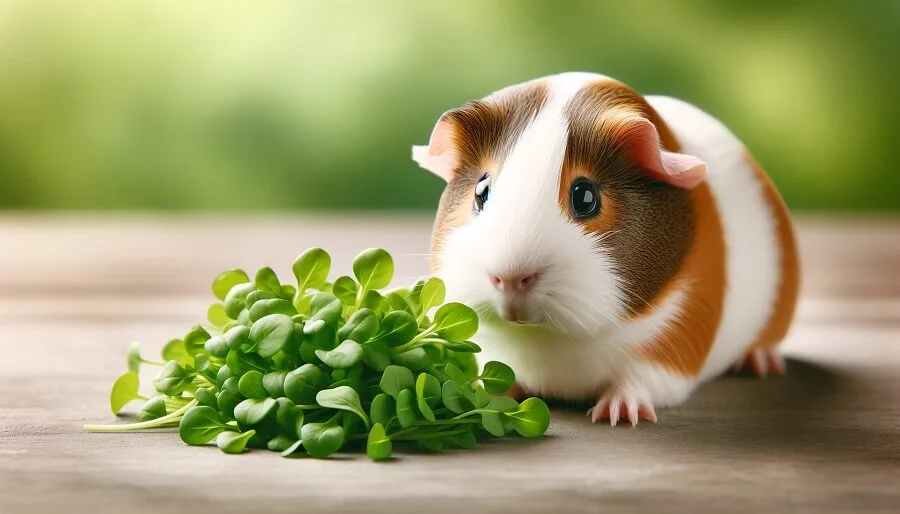Answer: Yes
Reason for Safety/Concern
Watercress is safe and highly beneficial for guinea pigs. It’s rich in Vitamin C, Vitamin A, and antioxidants, which are vital for the overall health of your guinea pig. However, due to its high calcium content, it should be given in moderation to avoid issues like bladder stones.
Serving Guidelines
- Amount: A small handful (about 10g)
- Frequency: 2-3 times a week
Preparation Tips
- Wash the watercress thoroughly under running water to remove any pesticides or dirt.
- Chop it into small pieces to make it easier for your guinea pig to eat and to prevent any choking hazards.
- Serve fresh and ensure it’s at room temperature to avoid digestive upset.
Nutritional Facts [per 10g of watercress]
- Calories: 2.3 kcal
- Protein: 0.31 g
- Fat: 0.03 g
- Fiber: 0.1 g
- Vitamin C: 10.8 mg
- Calcium: 20 mg
Signs to Watch For
- Diarrhea or loose stools
- Lack of appetite or reduced water intake
- Signs of urinary problems like difficulty urinating or blood in urine (may indicate issues related to high calcium content)
Additional Notes
- Watercress should be incorporated as a part of a varied diet due to its calcium content.
- Monitor your guinea pig for any signs of urinary tract issues, especially if they have had problems in the past.
- Always introduce new foods gradually to allow your guinea pig’s digestive system to adjust.
Additional Resources
- For more nutritional facts visit Diet & Nutrition.
- For a full list of what guinea pigs can and can not eat visit List of Safe & Unsafe Foods for Guinea Pigs.

